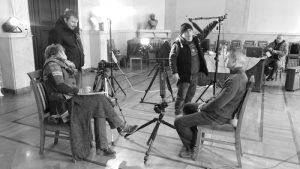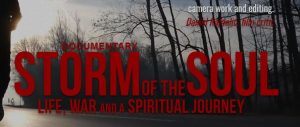Documentary: Storm of the Soul
Everyone in Grace will recognise Johnny, usually seated in the sound desk or adjusting microphones. Some may not know that Johnny is from Croatia which endured great suffering and bloodshed during the 1990s. Out of that suffering has come a powerful story which is now in the form of a documentary entitled STORM OF THE SOUL. Johnny was the main sound man on that film. Here is what he says about the film:
Almost 10 months have passed since the release of our Christian documentary STORM OF THE SOUL. This film tells the story of several Croatian war veterans, their personal struggles resulting from their traumatic experiences, and the peace and hope each one has received through trusting the Lord Jesus as their Saviour.
Remarkably, by God’s grace, the film has been shown on 8 television stations in Croatia, on most of them several times. It has also been shown publicly in several cinemas and cities in Croatia. The Ministry of Croatian Veterans presented it at the 1st Homeland War Documentary Film Festival. A measure of the film’s wide appeal is that almost all of the showings were organized by local authorities, veterans’ associations or the Ministry of Croatian Veterans, not by our organization.
It has also been translated into several foreign languages, including English, Korean, Italian, Bulgarian and Czech, with a Ukrainian translation currently in progress. All of these have been at the request of people from those countries.
The film has unexpectedly received overwhelmingly positive ratings and reviews from both viewers and critics. The most recent review we received was from the most famous Croatian film critic and film historian, Daniel Rafaelic, who wrote:
I watched your movie. I am amazed at its visual rhetoric, film literacy, great camera and editing. You have succeeded in inserting in the often non-cinematic narrative the visual delight that so subtly, rhythmically, follows the story…(conveying) one extremely important theme without a grain of melodrama, so common in this type of film.
In addition, the Ministry of Croatian Veterans’ Affairs (which co-financed the film in the final stages of production) declared our film the best documentary, of all the films they have supported financially, on the Croatian War of Independence.
There are about 50 such films in total, and our film has consistently received the highest ratings from the most influential film professionals in Croatia. Bearing in mind that this is a documentary with a clear Christian message, all these comments and praise are even more significant, demonstrating – we believe – the Lord’s hand in reaching people with the gospel through this medium.
I have viewed the documentary which I found profoundly moving and a powerful testimony to the impact of Jesus in the lives of men who had endured the fires of war and the trauma which followed. I highly commend it and urge you to view it.
Follow these links: Here for a six minute trailor; here for the full movie and here for the website associated with it.
==============================================================
Book: Lessons from a Hospital Bed
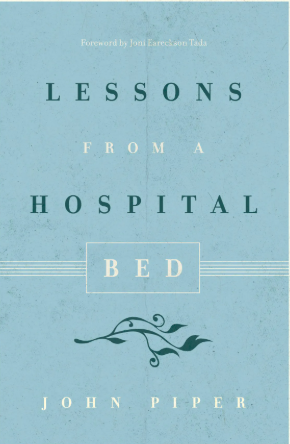
Jon Blackwell reviews“ Lessons from a hospital bed” by John Piper and published by IVP (74 pages). This book is also downloadable as a pdf for free on your phone or laptop.
I pulled this little book by John Piper out of my bookshelf a couple of days ago. I don’t know where it came from – probably one of you gave it to me!
Physical sickness affects more than just our bodies. It takes a toll on our emotional and spiritual health as well. In this honest book, John Piper shares ten lessons he learned while in the hospital.
It’s an easy read, just 74 very small pages which most people should be able to get through in an hour.
It is divided into two parts: the first deals with what he calls ‘Ten beliefs that I brought to the Hospital”. Each of these occupies just two pages and it deals with things like “God is good”, “God is wise and knows everything” and “God is totally in control”. The idea is that if you’re sick and heading for hospital you don’t need to further your theological education: you need to reminded in a simple way of some basic truths.
The second half of the book is called “Ten lessons from my hospital bed”. This is based on his own experience and is again very simple and practical: Don’t murmur about delays and inefficiencies in the hospital when you are getting medical care that surpasses by a hundred fold what is available in 90 percent of the world; don’t default to the television; realise that physical pain makes focussing on God’s promises more difficult and demands greater concentrating effort.
With regard to the last of these, he says:
At this point, it is so important that you have in your heart some very simple, short Biblical truths about God that you can declare to yourself. Long complex reasoning about God’s sovereignty and goodness won’t work in this situation, because the pain is too disorientating. It doesn’t allow the mind to work at full capacity. Instead, what you need is this: “The Lord is my shepherd.” Full stop. “Christ gave himself for me.” Full stop. “I will never leave you.” Full stop. “Nothing is too hard for the Lord.” Full stop. “Everything works for good.” These are like white stones with your name on them [the reference is to the Book of Revelation] and you hold them in your hand as you groan and wait.
If you are heading for hospital or just lying sick at home, or you know someone else who is, I heartily recommend this book as an encouragement.
And the good news is that you can download it free onto your phone in pdf form from this link. What are you waiting for?
================================================================
Book: Crown of Thorns: Connecting Kingdom and Cross

Hugh Morrison reviews “Crown of Thorns: Connecting Kingdom and Cross” by Tim Chester and published by Christian Focus Publications (109 pages). This book is also downloadable for Kindle
Don’t you just love it when someone puts back together things that have been bouncing off one another… and causing you to become distracted and confused? To the left are Christians who express their Faith in terms of the Kingdom and to the right are Christians who express their Faith in terms of the Gospel…and for quite some time now they have been defining themselves over against one another. Enter Tim Chester and his timely book entitled “Crown of Thorns: Connecting Kingdom and Cross” in which he demonstrates from Scripture that these two key themes belong together and need each other if they are to be correctly understood and, more importantly, outworked in our lives as Christians and church communities. So be distracted and confused no longer, enjoy this tour de force in re-integrating key Scriptural themes and rejoice in the startling words of St. Augustine “Our Lord has established his sovereignty from a tree.”
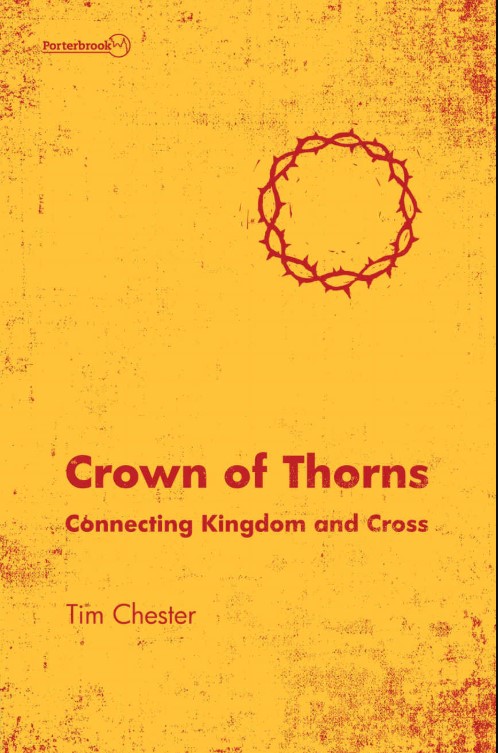
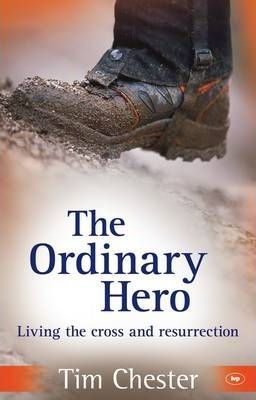
Hugh Morrison reviews here “The Ordinary Hero” by Tim Chester and published by IVP (224 pages). This book is also downloadable for Kindle
The Gospel is the story of Jesus’ death and resurrection and what these events in the past mean for those who believe today: It is indispensable if someone is to become a Christian, but have you ever wondered what the Gospel has to do with living the Christian life? If you have, then Tim Chester’s “The Ordinary Hero: Living the Cross and Resurrection” is the book for you!
Tim begins by setting out for his readers how the cross is the measure of both God’s love for us and our need before him. At the foot of the cross we discover humility, we cannot save ourselves, and gain confidence from the assurance that God smiles upon us in Christ.
From the pardon of the cross, he moves to its practice – to take up your cross. Tim points out that, when the writers of the New Testament speak of following Jesus, they nearly always refer to the template of his cross and resurrection, so much so that the question “What would Jesus do?” can be answered by the phrase “Way of the Cross.” This way is one of sacrifice, submission, self-denial, service, and suffering and our willingness to follow it is an expression of the value we place upon Christ. The pattern of life that it gives rise to recognises that, while glory lies ahead, there are no short cuts to getting there! Cruciformity means that our lives narrate the story of Jesus: humiliation precedes exaltation.
Tim goes on to insist that the cross and the resurrection are inseparable. The power of the resurrection is seen in the apparent weakness of lives lived for others, which thereby evidence the maturity of not being self-centred! The Holy Spirit enables such living and his presence is likened to a lover’s kiss, a foretaste of the promised future in which Christ will return and all creation will be renewed. Indeed, the reality of our belief in the resurrection life to come is evidenced by our willingness to lay up treasure in heaven in the here and now, treasure that will manifest itself in the pleasure of seeing how our service has contributed to God’s glory.
The words above in italics mark the five successive sections of the book, which throughout is drenched in Scripture and in its practical application to the all-too-recognisable circumstances of our lives. The Gospel is shown to be as central to the on-going Christian life as it is to its start: no other template is up to the job! And Tim concludes with a highly memorable example of someone who embodied this way of life, a truly ordinary hero – if you want to know who that person is, you’ll have to read the book for yourself, as I’m not one for spoiling a good ending!
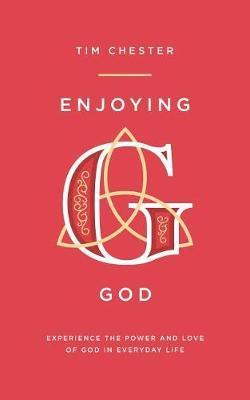
Hugh Morrison reviews here “Enjoying God: Experience the power and love of God in everyday life” by Tim Chester and published by The Good Book Company (189 pages). This book is also downloadable for Kindle
I wonder if believing in the trinity is simply something that features in our lives as a mark that we are orthodox. If so, then Tim Chester’s book “Experiencing God” opens up a whole new vista of how we come to know God as he is in himself, the Father, the Son, and the Holy Spirit, one God in three distinct persons. Tim encourages us to relate to each of the persons, while recognising that they are in each other, too. And he insists that we do so only on the basis of our union with Christ.
Now if this book is sounding to be a bit too lofty, let me reassure you that it lives up to its sub-title “Experience the power and love of God in everyday life”. From the outset, Tim introduces us to Mike and Emma and the disastrous Monday morning that they are having. At the end of each chapter he revisits this Monday morning to apply how the insights shared could affect their handling of the successive disasters that occur. And so the book is avowedly practical!
Tim goes on to identify ways in which God interacts with us in the nitty gritty of daily living. He favours the term “means of communion” rather than “spiritual disciplines” or “means of grace” to describe these interactions, as this term denotes relationship. He also states that the goal of God’s relationship with us is his pleasure and ours, in a word joy!
In speaking of the Father, he explores how by faith we can see that, far from living in a fatherless world, we live in one that is fathered, a world in which there is an “excess” of beauty. Through our adoption as believers, we come to share in the blessings that the Son has enjoyed by virtue of his divine nature. As he suffered in this life that he might be equipped to be our mediator, so the Father disciplines us, that we might be made more Christlike. And the Spirit’s work in our lives is seen as he moves us to pray and love God.
In speaking of the Son, he explores how his seated presence in glory is our guarantee that we will be with him in the life to come. He explores, too, how our union with him now is an invitation to release our grip on the sin in our lives that he might deal with it. In the glory, he retains our human nature, and so he feels with us as we suffer, and in the Lord’s Supper he is made spiritually present to us by his Spirit, as we partake by faith of the tangible elements.
In speaking of the Holy Spirit, he explores how he is the advocate that Jesus promised to us, whose life in us is seen when we struggle against temptation. He intercedes for us with groans too deep for words and he moves us to groan not for “a golden past” but for a glorious future. He speaks to us through the words of Scripture, words which we do well to turn into prayer.
Tim’s concluding chapters touch on how we need each other as believers, as the Christ in our hearts is often “weaker” than the Christ in the words of our fellow Christians. And so we receive God’s love through the love of one another. He also touches on how we lack joy in our relationship with God as a result of the lack of repentance in our lives: He likens repentance to the gateway to God’s pleasures, it may be a tight squeeze, but it gives way to wide open spaces!
The book is brim full of Scripture, telling illustrations, and tips for real life application. It finishes up with Tim recounting how he found himself waiting for, of all things, a Dublin Airport Bus at 5am in the rain. In the midst of such dismal conditions, he recounts how he was moved by God from self-pity and criticism of others to thankfulness, confession, and praise, by the application of the insights in his book to himself: A fitting testimony to its value!
( I purchased my copy from the Christian Publications Centre, 110 Middle Abbey Street, Dublin 1 )
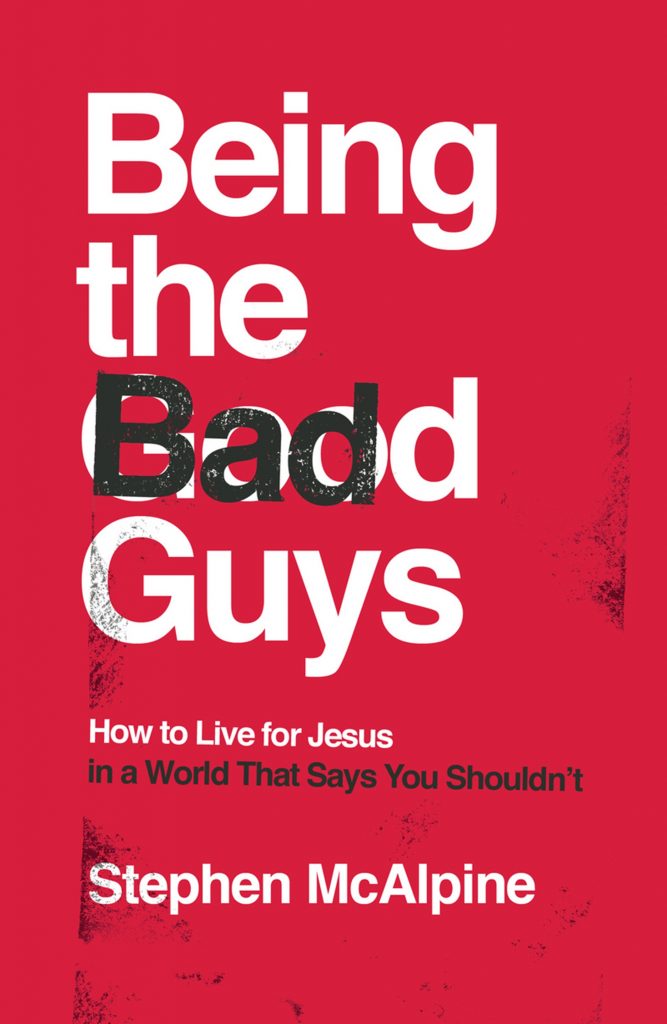
Review by Hugh Morrison of “Being the Bad Guys: How to Live for Jesus in a World That Says You Shouldn’t”
By Stephen McAlpine and published by The Good Book Company 2021
Do you remember a time when to say that you were a Christian was understood to mean that you considered yourself to be a good person in the eyes of society? Increasingly, being a Christian and being a good person are no longer seen as being the same thing by our peers and it is this “discombobulating” change, which Stephen McAlpine, a Northern Irishman who lives in Perth, Western Australia, seeks to explain and help us with in his recently published short (143 pages) and highly readable book.
The storm that we now find ourselves in may be to do with ethics, that is how to live well, but it is driven by the imperative that each individual should be true to themselves. The individual alone can determine what such authenticity will look like, especially when it comes to sexuality and gender, which are understood to be the very essence of identity. While presented as being consistent with secularism, this is a new understanding of human identity, and the way of life that goes with it, that amounts to an ideology or religion of the self alone. And as such, it clashes with Christianity, which believes that human beings are created in God’s image, that’s a given, and that we are most truly human as that image is renewed to resemble the life of Christ, which was one of self-denial for the sake of others.
Within this new scene that is now mainstream in the West, Christians are no longer the good guys, but the bad guys, and Stephen’s book sets out to help us be the best bad guys that we can be. He points out that appearing to be on the wrong side of the tracks of history has been the common experience of Christians in many different places down through the centuries. He invites us to respond by accepting the hardship challenge of the Antarctic explorer, Ernest Shackleton, only with this exception, that a safe return is assured, as our final destiny is not in doubt! In doing so, responses of anger or claimed victimhood are to be turned down, in favour of prioritising engagement with God’s people in joyful worship and service: He sees no prospect of Christians weathering this storm on their own! The apologetic value of Christian community and Christian living is seen as key in changing minds that are opposed to Christianity. He also addresses the challenges of the workplace by exploring the example of Daniel, who was faithful, faultless, and fearless in his day. Stephen cites, too, the experience of Christians in Corinth and the quest to live in the city, while not being of the city. He concludes by reminding us that the church is on the right side of the tracks of history after all, as the cross has changed the course of history irrevocably!
Some Good Worship Youtubes
Shane & Shane: Is He Worthy – YouTube
Jesus I My Cross Have Taken – Indelible Grace – YouTube
CityAlight – Christ Is Mine Forevermore (Lyric Video) – YouTube
O Love That Wilt Not Let Me Go (George Matheson 1842-1906) – YouTube

